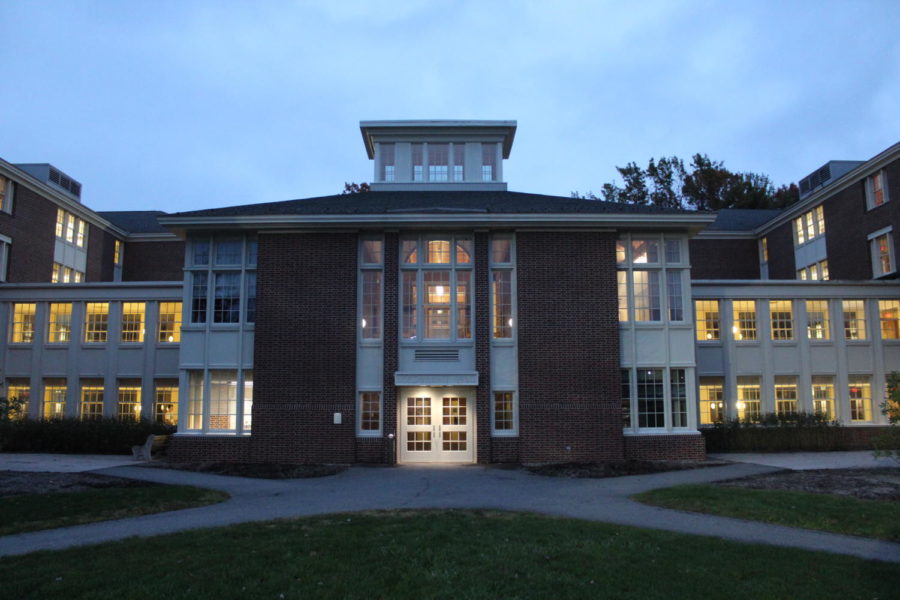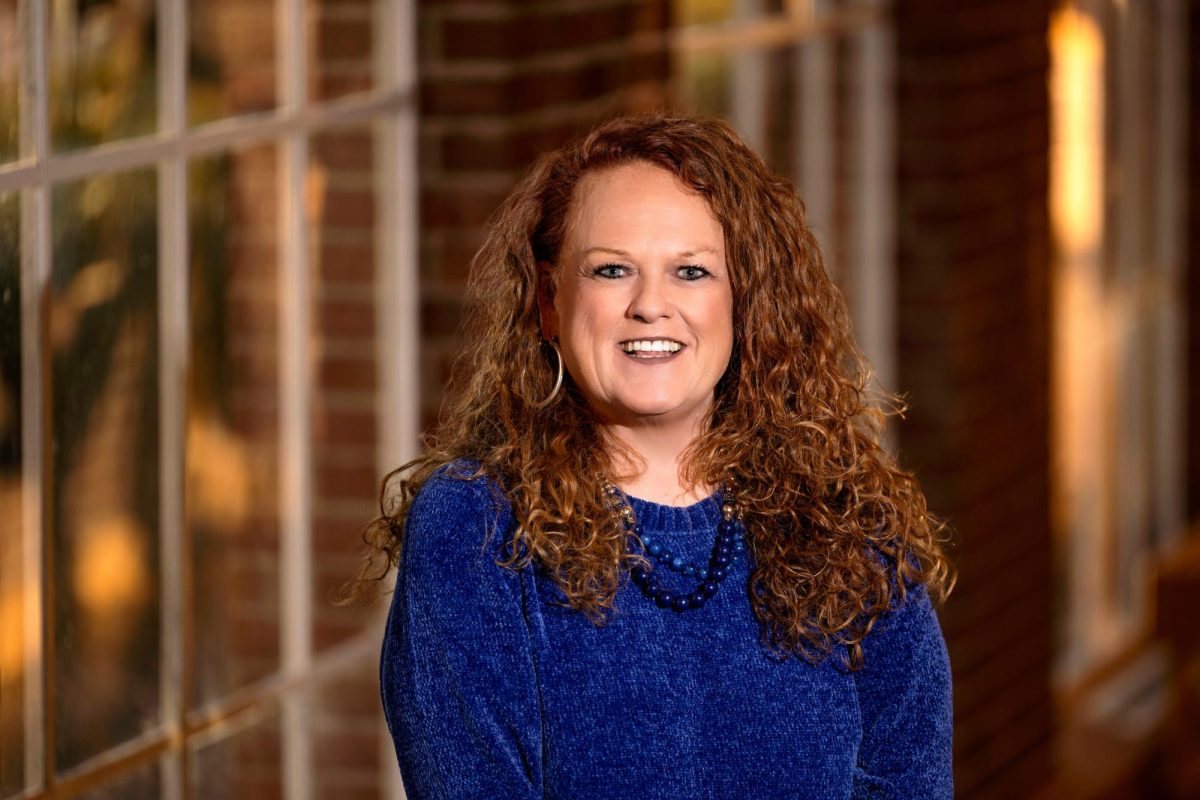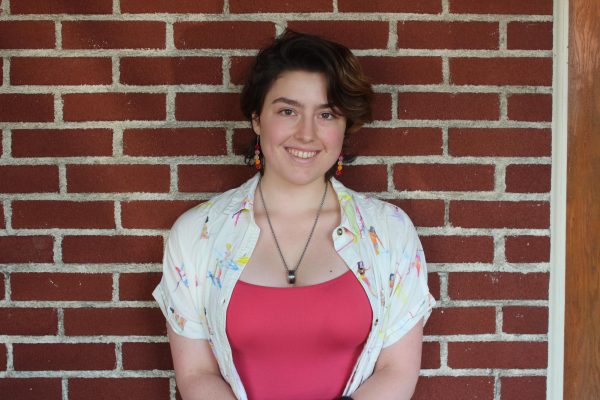Note: This article has been updated since its original publication with corrections from the featured vendors.
After hearing Bucknell student input about Parkhurst Dining, the current dining services provider on campus, administration has brought forward three finalists in their search to install a replacement: Aramark, Chartwells, and Harvest Table Culinary Group. Students and faculty alike will be given the opportunity to meet and vote on these dining service providers as each one will be delivering a presentation about their food and model in the ELC Terrace Room at noon on March 5th, 6th, and 7th, respectively.
To give those who plan to attend those meetings a better idea of who they’re voting for, and incentivize those potential attendees who may still be on the fence, here is a deep dive into the mission statement professed by each company, as well as what their current customers have to say about their service.
Aramark
In its own website’s words, Aramark’s “services are vast”— they provide food services, facilities management, and uniform services to hundreds of companies worldwide. Aramark claims a “people-first approach” is at the “core” of all of their operations, and that a “passion for hospitality” underlies every action the corporation takes across all of their industry divisions, from education to business to prisons.
To an extent, those words seem to be true: Aramark was one of, if not the, first to establish gluten-free food options at Major League Baseball parks. At Bucknell, Aramark proposes to open a True Balance station, which avoids the 9 major allergens altogether. Additionally, students will have access to a dedicated on-site dietitian who can help them develop individualized plans to meet their nutritional needs regardless of dietary restrictions or preferences.
Aramark is not best known for its allergen-friendly approaches, though. Most recently, it has gained notoriety in the media for its tendency to supply expired, rotten, infested, and otherwise inedible foods to the prisons it contracts with all across America. Immigration facilities in Europe with which Aramark holds contracts have reported similar issues, and Aramark’s facility management services in American schools have recently been terminated in multiple locations after reports of unsanitary operations persisted for months. Clearly, the services’ problems are not exclusive to the prison system, and could very well affect Bucknell’s campus.
On top of the many food-quality-specific complaints, Aramark has a history of underpaying or withholding pay from workers, and firing those who report unsanitary working or food prep situations. Aramark as a company has managed to avoid receiving substantial blowback for allegations of employee sexual harassment and assault, and they have not taken official responsibility for reports of drug trafficking associated with their foodstuff’s transportation.
An Aramark representative stated, “Aramark is proud of the work that we do in the corrections industry. We believe that all people deserve healthy, nutritious meals, regardless of their circumstances, and that we can uniquely deliver this thanks to our nutritional and operational expertise. We are committed to helping justice-impacted people through our IN2WORK (I2W) program—which offers nationally recognized food service and retail certifications, our scholarship opportunities for our I2W graduates and their families, as well as by serving as a ‘second chance’ employer.
Aramark—across all of its separate lines of business—prides itself on how it prioritizes safety and people, and if issues are discovered, we work to fix them quickly. You will find that we take all customers’ concerns very seriously, investigate every concern that is brought to our attention, and provide numerous avenues for feedback between the campus community and our hospitality team. Bucknell University will find that we are always willing to listen and incorporate community feedback in all aspects of our campus work.”
Chartwells
The second option presented to Bucknell students and staff, Chartwells HigherEd describes itself as “investing in high-tech, food-infused social spaces that bring people together to promote meaningful relationships and interactions”. Chartwells advertises its key differentiators as customized approaches to each campus to suit their culture and traditions, their community space design, “growing engagement and revenue” for the university, sustainability through responsible and ethical sourcing, investing in quality, local on-trend ingredient sourcing and consideration of growing allergen concerns. On their website is an infographic detailing the company’s operations; Chartwells is partnered with 300 campuses, hires 1,300 people each year, and has a 98% retention rate.
Chartwells does carry a few reports of serving undercooked food to K-12 students but beyond that, they have few direct complaints. Notably, Chartwells Higher Education and Chartwells K12 operate separately, each with their own management teams.
That being said, Chartwells is owned and operated by the Compass Group, an England-based food services company that provides dining to, among other things, schools, universities, prison systems, and offshore oil systems. Current Chartwelss Higher Education CEO Lisa McEuen worked for the Compass Group North America until 2014 when she transitioned to being the Executive Vice President of Chartwells Higher Education, then promoted to CEO in 2016.
Along with a lengthy UN scandal, a bacterial outbreak in the food of their Canadian prison clients, the alleged used of slave labor, and being named “Britain’s Most Heartless Employer,” the Compass Group has in the past provided horse meat, without the knowledge of the consumer, to its clients.
Harvest Table Culinary Group
Last but most certainly not least on the list is Harvest Table Culinary Group. Its website mentions allergen awareness and organic, healthy sourcing, and claims a focus on “fresh, local food,” “extraordinary culinary experiences,” and “personalized service.” According to their website, Harvest Table is committed to tailoring their services according to the needs of the specific school or university they’re contracting with; they employ yearly consumer surveys to stay up-to-date on their clients’ needs, preferences, and relevant feedback.
As a dining service, regardless of location or contractor, Harvest Table’s published “promise” is to “share [its] culinary story with complete transparency,” “stay true to the way [it] serves [its] food,” and “grow roots in [the] community through food.” Establishing a connection with local farmers, chefs, and businesses is an explicit goal of Harvest Table, and one it claims to accomplish with every client. Repeatedly, Harvest Table’s website expresses a commitment to quality food and service— it even traces the sourcing of food products back to well-known organic commercial brands like Chobani and Applegate Farms.
Harvest Table Culinary Group is owned and operated by Aramark. However, its website was recently refaced by WD Partners to no longer visibly display the connection.
Students are greatly encouraged to attend and vote at the March tastings/presentations on the 5th, 6th, and 7th in the Terrace Room. Additional details on the finalists’ presentations can be found on the Dining Partner Selection website. Your vote matters!




























